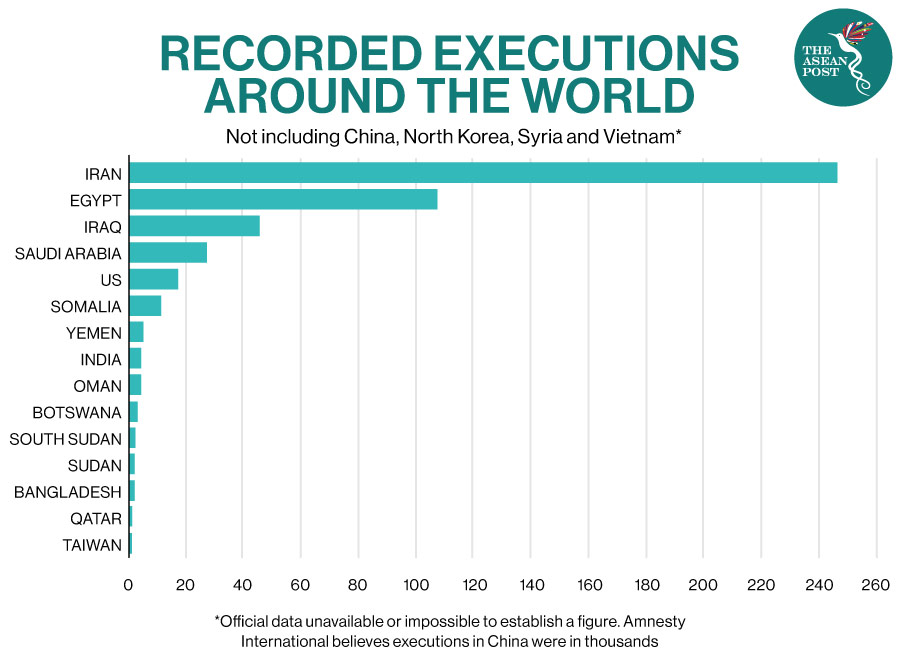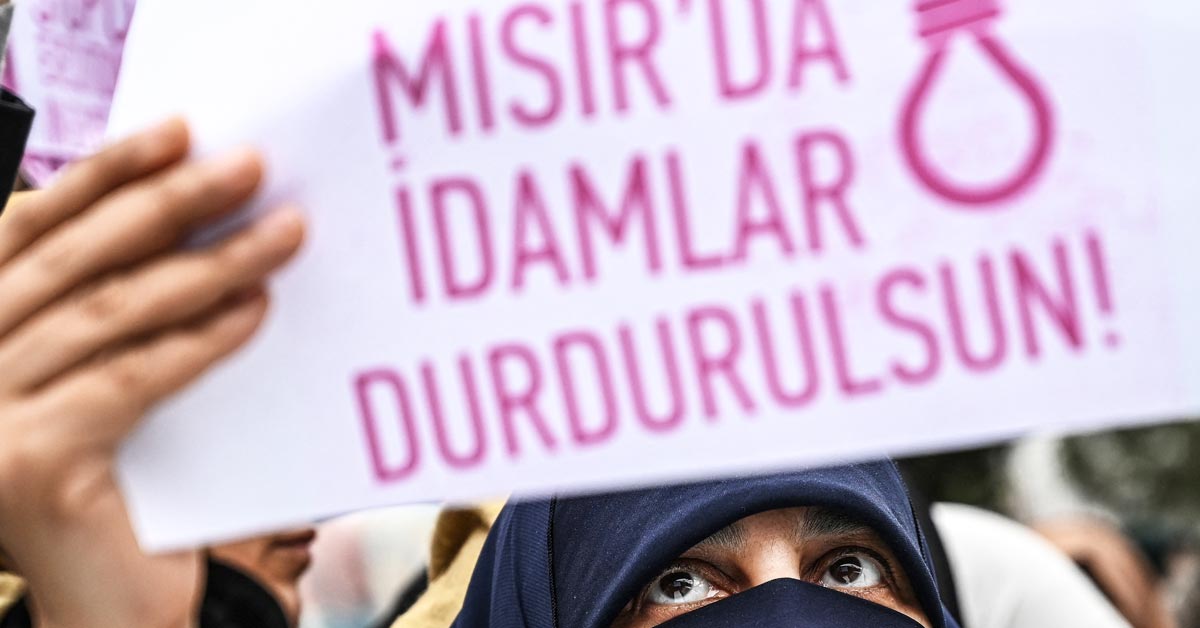Four of the world's five top executioners in 2020 were Middle East states, Amnesty International says. Iran, Egypt, Iraq and Saudi Arabia accounted for 88 percent of the 483 reported executions worldwide, according to a report by the human rights group.
It accuses them of displaying "a ruthless and chilling persistence" when most of the world was focused on saving people's lives from a deadly virus.
The global total was the lowest in a decade, but it did not include China.
China is believed to execute thousands of people each year, but the data on its use of the death penalty is a state secret.
Secrecy in North Korea and Vietnam also made it impossible to verify reports from those two countries. The 483 executions in 18 countries reported during 2020 represented a decrease of 26 percent compared to 2019's 657 executions, and a fall of 70 percent from a peak of 1,634 executions in 2015, Amnesty International said on Wednesday in its annual report on use of the death penalty.
In the Middle East, the overall number fell from 579 in 2019 to 437 in 2020. That was largely driven by an 85 percent drop in recorded executions in Saudi Arabia, where 27 took place, and a 50 percent reduction in Iraq, which carried out 45.
However, the report says the decreases were overshadowed by a 300 percent rise in Egypt, which put 107 people to death and became the world's third most frequent executioner. 23 of those people were convicted in cases relating to political violence, after what Amnesty said were grossly unfair trials marred by forced "confessions" and other violations.
There was also a spike of 57 executions in October and November following a botched break-out attempt at al-Aqrab prison in which several police officers and death-row inmates died.
Iran, which carried out at least 246 executions, remained in second place globally behind China.
Amnesty said Iranian authorities increasingly used the death penalty as "a weapon of political repression" against dissidents, protesters and members of ethnic minority groups.
They also executed three people for crimes that occurred when they were below the age of 18, in violation of international humanitarian law.
Amnesty accused Qatar of taking "an alarming step backwards" by carrying out its first execution in 20 years. A Nepali man convicted of murder was shot by firing squad last May. A government body in Saudi Arabia attributed the sharp decline in executions there in part to "a moratorium on the death penalty in drug-related offences".
But Amnesty said it might also have been due to a desire by the kingdom to avoid criticism over the issue overshadowing its G20 presidency.

In the United States (US), the Trump administration resumed federal executions after a 17-year-long gap and put 10 people to death in under six months.
India, Oman, Qatar and Taiwan also resumed executions.
"As the world focused on finding ways to protect lives from COVID-19, several governments showed a disturbing determination to resort to the death penalty and execute people no matter what," Agnès Callamard, Amnesty's secretary general, said in a statement.
"The death penalty is an abhorrent punishment and pursuing executions in the middle of a pandemic further highlights its inherent cruelty."
Ms Callamard said people on death row were unable to access in-person legal representation, and that many of those wanting to provide support had to expose themselves to considerable health risks.
"The use of the death penalty under these conditions is a particularly egregious assault on human rights," she added. - BBC
Related Articles:
